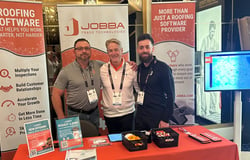Social Behavior Change Consultant
Terms of Reference 2025
Description of Consultancy
WI-HER seeks an experienced social behavior change (SBC) consultant to provide technical assistance for a Green Cities/Adaptation pilot activity recently launched by Tetra Tech through USAID’s Integrated Land and Resource Governance II (ILRG II) program. This consultancy will focus on supporting WI-HER’s application of its innovative iDARE methodology to ensure a participatory and inclusive planning process. By integrating cross-cutting objectives such as Gender Equity and Social Inclusion (GESI) and climate resilience into urban planning, the consultant will play a critical role in advancing equitable and sustainable development outcomes.
Position: Social Behavior Change Consultant
Project: Integrated Land and Resource Governance II Task Order
Location: Lilongwe, Malawi (in-person)
Period of Performance: February 2025 – February 2026 (with potential for expanded scope)
Compensation: Daily rate ranges from $240-$270 USD based on experience and expertise
LOE: ~60 days
Company Description
WI-HER, LLC is an international small business that identifies and implements creative solutions to complex health and social challenges to achieve better, healthier lives for women, men, girls and boys. We employ an integrated, multisectoral approach that works across sectors to improve health outcomes and achieve sustained development. WI-HER, LLC is a woman-owned small business based in Vienna, VA.
Program Background
The Integrated Land and Resource Governance II (ILRG II) Task Order provides support to the Land and Resource Governance (LRG) Division in the Center for Natural Environment in the Bureau of Resilience, Environment and Food Security (REFS) at the United States Agency for International Development (USAID) to develop, implement, assess and evaluate interventions that secure land tenure and resource rights and strengthen LRG systems ILRG II seeks to achieve the following four objectives:
- Strengthen enabling environments to promote inclusive legal and policy frameworks for land and resource governance in formal and customary settings;
- Enhance the capacity of key stakeholders and partners in government, civil society, local communities and the private sector to implement inclusive land and resource governance laws and practices;
- Build innovative partnerships with the private sector that enable responsible land-based investing to promote resilience; and
- Support robust monitoring, evaluation, research and learning activities to improve land and resource governance programming.
Within this framework, ILRG II is implementing a community-led peri-urban planning and development pilot project in Malawi aimed at reducing climate risks and improving climate resilience for local people. Through the pilot, ILRG II will create a replicable approach to climate resilient peri-urban development urban expansion. The pilot includes two complementary components:
- A citywide plan: ILRG II will work with Lilongwe City and Lilongwe District Council planning officials to develop a climate resilient citywide plan and arterial road network that directs development away from high-risk areas, preserving natural capital (i.e. forests, green spaces, wetlands, etc.), protecting drainage channels and flood zones, and increasing access to employment opportunities for communities. Contingent on informed community consent, ILRG II will place beacons in two Traditional Authorities (TAs) to mark the outer edges of the arterial road grid. Development of the citywide plan will incorporate best practices for equity and inclusivity.
- Community-led neighborhood plans: ILRG II will pilot a climate-resilient, community-led neighborhood planning and development approach in two Traditional Authorities (TAs) Building off the citywide plan, the neighborhood plans will be developed by landholders and community members in two 25-hectare (ha) sites, and will include streets, drainage systems, and public open spaces according to planning best practices. Throughout implementation of this component, ILRG II will meaningfully include women, men, and youth and other marginalized groups to ensure the neighborhood plans and development activities are bottom-up and inclusive.
The pilot project directly promotes climate resilience for local communities by directing growth away from vulnerable areas, preserving natural capital, and protecting drainage channels and flood zones. Additionally, community-led neighborhood planning engages landowners in designing and benefiting from green and livable cities, with green spaces, services, access to diverse employment opportunities, and security of tenure. By formalizing land ownership and incorporating climate-adaptation measures into urban planning, this pilot approach aligns with Malawi’s broader goals of promoting sustainable, inclusive urban development in the face of climate change.
Purpose of the SOW
WI-HER, LLC seeks to engage a Social Behavior Change (SBC) Consultant to co-lead the design and implementation of an SBC & Gender Equity and Social Inclusion (GESI) process in the climate-resilient, community-led neighborhood planning and development component of the Green Cities/Adaptation pilot. Specifically, the specialist will work with WI-HER to learn, adapt and implement a results-based methodology called iDARE (Identify, Design, Apply/Assess, Record, Expand) to identify project risks and ensure a participatory planning process with stakeholders at all levels and phases of the project. This methodology will support the integration of GESI and other critical considerations throughout each implementation phase —from the creation of parcel maps and neighborhood plans in the first phase of the project, to potential land parcel allocation and title issuance in the second phase.
Scope of Work/Activities/Tasks
The specialist is expected to implement activities across three project phases: (1) sensitization and community engagement, (2) planning and reallocation, and (3) formalization, which will be led by multiple stakeholders and implementing partners. Beginning in two neighborhood areas, the specialist will work with WI-HER to employ structured approaches to social behavior change and GESI, using iDARE to identify risks, validate findings, and co-develop solutions and recommendations with local communities and leaders. The roles and responsibilities of the specialist are grouped under three tasks, elaborated below:
Task 1: Develop Materials, Plan, and Identify Risks (~5 days)
- Develop and tailor GESI training materials for various project stakeholders, including the project team, community leaders, and two Community Land-Use Committee (one per neighborhood area). These materials will incorporate local context and findings from the initial scenario analysis and GESI assessment, addressing key project phases and anticipated challenges in urban planning, climate resilience, and related areas.
- Support the creation of a comprehensive risk chart that maps potential risks (e.g., GESI, climate, engagement, etc.) for each phase of the project, which will guide Root Cause Analysis (RCA) activities.
Task 2: Implement training, RCA, and Stakeholder Engagement (~20 days)
- In collaboration with WI-HER and ILRG II, deliver foundational GESI training to the project team, covering core concepts, findings from the GESI analysis, and an introduction to the iDARE methodology.
- Conduct RCA sessions with the project team to validate identified risks using the risk chart, incorporating action planning to address risks and ensure an inclusive community engagement approach.
- Conduct sensitization sessions for Traditional Authorities and government officials to raise awareness of identified risks, including GESI considerations, and to facilitate action planning that supports proactive and inclusive urban planning processes.
- Establish selection criteria to form diverse cohorts of community land-users for each site, representing dimensions such as gender, age, ability, and ethnicity.
- Facilitate RCA sessions with each cohort to validate risks, address barriers to engagement, and identify influential community members for further collaboration.
Task 3: Form and Support the Community Land-Use Committee (~35 days)
- Leverage insights from the RCA to establish Community Land-Use Committees (Committee) composed of diverse local stakeholders, such as village heads, women’s group leaders, and potentially members of the cohorts of community land-users formed under Task 2.
- Train the Committees in the iDARE methodology, incorporating RCA results and identifying solutions to test within the communities. The process and structure (via iDARE journals/plans) for utilizing RCA results to identify, test, and monitor solutions essentially encompasses a co-created sensitization plan to ensure solutions address issues raised in the RCA and previously, through the initial GESI assessment, and that they align with local priorities.
- Provide ongoing mentoring and technical support to ensure the Committees reach and engage community members in an inclusive way throughout project activities, and document actions and progress.
- Conduct monitoring visits for committees to flag and offer solutions to challenges that arise during implementation
In collaboration with the WI-HER Program Manager, the Social Behavior Change Consultant will be expected to produce some of the following deliverables in relation to the above tasks:
Task 1: GESI Training Outline and Plan
Task 1: Project Risk Chart
Task 1: Adapted iDARE Tools and Training Plan
Task 2: Initial GESI/iDARE Training Session Report
Task 2: RCA Findings and Community Cohort Summary Report
Task 3: iDARE Journal and Knowledge Sharing Report
Quarterly Progress Report
The ideal candidate will possess the following qualifications:
Educational Background:
- A degree in social behavior change (SBC), community development, international development, urban planning or a related field (advanced degree preferred).
Skills and Experience:
- Minimum of 5 years of demonstrated experience in designing and implementing social behavior change methodologies, particularly in urban or peri-urban settings.
- Proven expertise in applying GESI principles within development projects.
- Strong facilitation and training skills, with a track record of working effectively with diverse stakeholders, including marginalized groups.
- Excellent written and oral communication skills, including the ability to produce high-quality reports and deliver presentations.
Local Knowledge and Context:
- In-depth understanding of the local context in Malawi, particularly in urban planning, land tenure systems, and climate resilience.
- Experience engaging Traditional Authorities, local governments, and community-based organizations in Malawi.
- Residing in Lilongwe and able to work in-person throughout the consultancy period.
Personal Attributes:
- Cultural sensitivity and ability to build trust and rapport with diverse communities.
- Strong problem-solving skills and adaptability to address emerging challenges during project implementation.
- Commitment to fostering equity and inclusion in all aspects of work.
Preferred Qualifications:
- Experience with results-based and participatory approaches
- Familiarity with tools or frameworks for urban planning, community mapping, or land use analysis.
- Proficiency in local languages (e.g., Chichewa) in addition to English.
WI-HER is committed to fostering a diverse, multicultural work environment and welcomes a range of backgrounds, life experiences, perspectives, and opinions. WI-HER provides equal employment to all and has zero tolerance towards discrimination on the basis of race, color, religion, sex, sexual orientation, gender identity or expression, pregnancy, national origin, citizenship, age, marital status, disability, medical condition, or any other characteristic protected by state or federal laws.
What We Do
WI-HER, LLC (Women Influencing Health, Education, and Rule of Law) is an international consulting firm that identifies and implements creative solutions to complex health and social challenges to achieve better, healthier lives for all. We employ an integrated, multisectoral approach that links health with education, rule of law, and agriculture to improve health outcomes and achieve sustained development. WI-HER, LLC is a woman-owned small business based in the Washington, DC area.
We offer the following services to—and in collaboration with—projects, organizations, and governments:
• Gender integration technical assistance and trainings
• Program design, monitoring, and evaluation
• Systems strengthening, capacity building, and policy reform
• Improved service delivery and utilization
• Community mobilization and individual behavior change
• Knowledge management
• Strengthening democracy and governance
Our multicultural team is comprised of Masters- and Doctoral-credentialed public health, medical, legal, and development professionals that possess extensive experience working in a broad range of technical and programmatic areas. Our team has a wide range of experience working for public and private partners in Africa, Asia, Eastern Europe, Latin America and the Caribbean, and the Middle East, and can successfully work from the community to the national level.
We invite you to explore our career opportunities (http://www.wi-her.org/careers/) and connect with us:
• Facebook: https://www.facebook.com/Women-Influencing-Health-Education-and-Rule-of-Law/
• Twitter: https://twitter.com/WIHERllc







